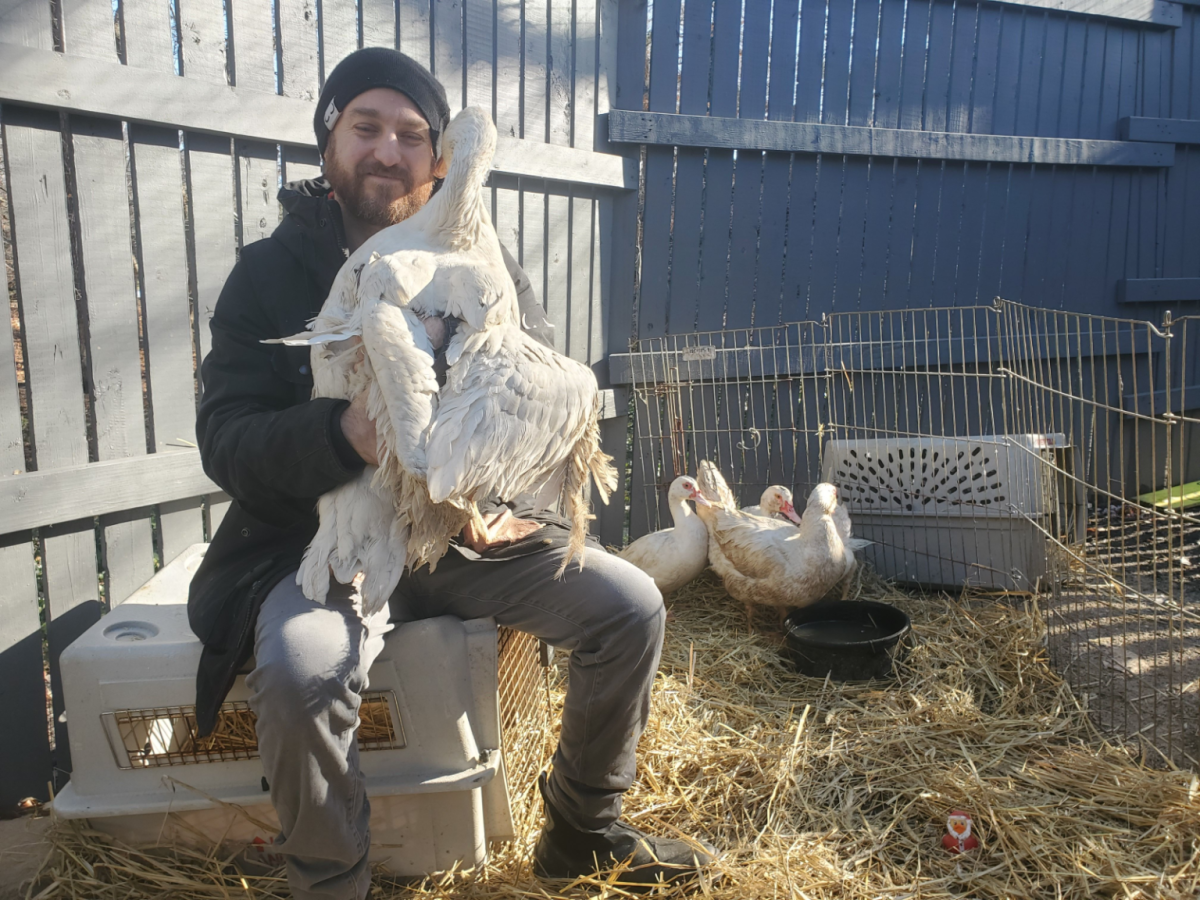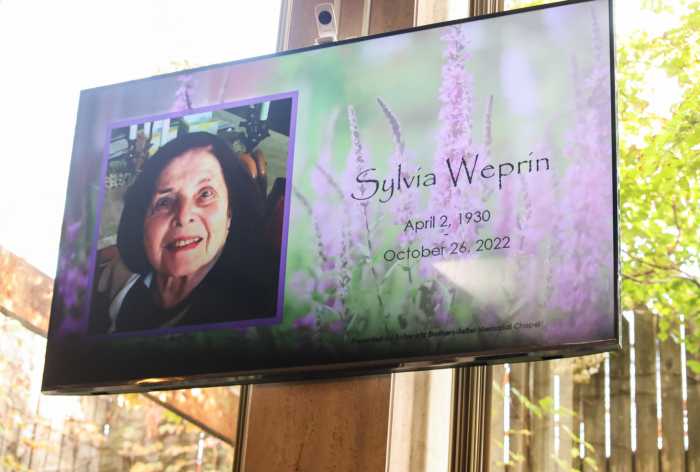QNS is looking back at the top stories throughout 2022, as we look forward to 2023.
Below are the top stories from the month of January.
Queens became the first county in New York to have 2 million residents receive the COVID-19 vaccine
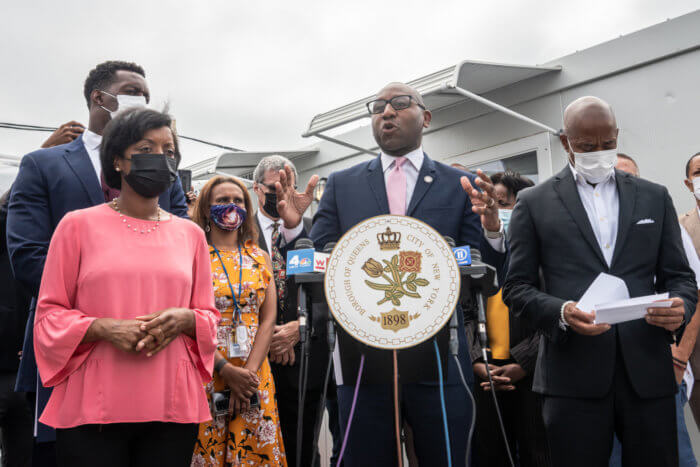
On Jan. 8, Queens became the first county in New York state to have 2 million residents receive at least one dose of a COVID-19 vaccine, the city’s Health Department announced. It marked a huge milestone for the borough that was labeled as the “epicenter of the epicenter” of the public health crisis.
“Queens has proven, again and again, no borough has shown more strength, resilience and resolve in our collective comeback than our own,” Queens Borough President Donovan Richards said. “The pandemic is not over yet, as we’ve learned with the recent surge in cases brought on by the omicron variant, and neither is our fight against it. To all our neighbors who continue to roll up their sleeves to get both vaccinated and boosted and to all our healthcare workers who continue to serve their communities with unparalleled heroism, thank you for stepping up on behalf of our shared borough.”
Jamaica resident overcomes severe epilepsy and embraces new life with family

After battling the worst form of epilepsy for 15 years, Gavin Deo, 35, of Jamaica, was finally seizure free in January, allowing him to spend quality time with his family, especially his daughter, during the holidays.
“I can get back to work, and hopefully start driving again,” said Deo, who suffered symptoms of epilepsy including seizures, abnormal movements or behavior due to unusual electrical activity in the brain. Deo’s drug-resistant seizures would strike without warning and occurred multiple times per week, causing convulsions and loss of consciousness to the point where he feared leaving home. During this time, he needed to be closely monitored by family and friends, and guided through daily tasks.
According to Deo, his entire life was “hijacked by seizures.”
“I could no longer drive or work. The frequency of my seizures took a heavy toll on my family, especially my relationship with my 10-year-old daughter,” Deo said. In 2009, he met Dr. Reza Zarnegar, an epilepsy neurologist at NewYork-Presbyterian Queens Hospital, while admitted to the emergency department for a violent seizure.
Ten years later, after another seizure, the two met again in the exact same place. This second encounter would change Deo’s life.
In July 2021, Deo’s surgery was performed by renowned neurosurgeon Dr. Theodore Schwartz at NewYork-Presbyterian/Weill Cornell Medical Center.
During the procedure, electrodes were implanted directly in Deo’s brain to record and pinpoint the seizure’s location. A few days after this monitoring, Schwartz then removed that particular small portion of the brain causing the seizures.
After countless medications and a decadelong hunt for a cure, Deo is now embracing a life without seizures.
“From our first meeting I knew if Gavin could just overcome his seizures, he would excel in his career and other aspects of his life,” Zarnegar said. “Epilepsy is a painful secret for so many, as patients fear the stigma and discrimination. However, with cutting-edge advances in epilepsy treatment, and appropriate medical care, and healthy lifestyle habits, most people with epilepsy can go on to live a normal and full life.”
Steinway Library reopens following $4.9 million rehabilitation project
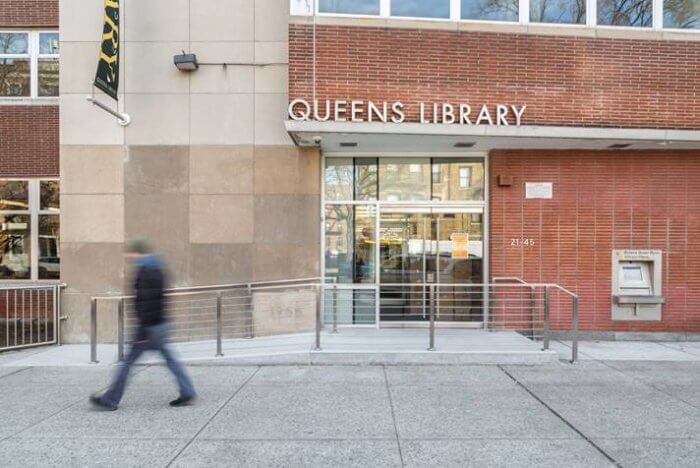
The Steinway Library in Astoria reopened to the public after undergoing a $4.9 million makeover. Queens Public Library and the city Department of Design and Construction (DDC) announced that the branch, located at 21-45 31st St., now has a new ADA elevator providing accessibility to all three levels of the building from the cellar to the second floor. The children’s area, teen area and multipurpose room, as well as part of the cellar, were renovated with new ceilings, flooring, furniture and lighting.
“These crucial upgrades to the building offer the community a library that is more inviting, technologically efficient and accessible to all,” Queens Public Library President and CEO Dennis M. Walcott said. “We know the public has been eagerly awaiting the reopening of the branch, and we are truly excited to welcome them and serve them once again.”
The branch was closed for renovation in October 2018. The construction included a new ADA-accessible ramped entrance and a 24/7 exterior book returns machine at the main entrance on 31st Street. Three new restrooms were installed in the cellar, including an all-gender, single-occupant, ADA-accessible restroom.
Forest Hills residents cry ‘fowl’ over birds kept in deplorable conditions
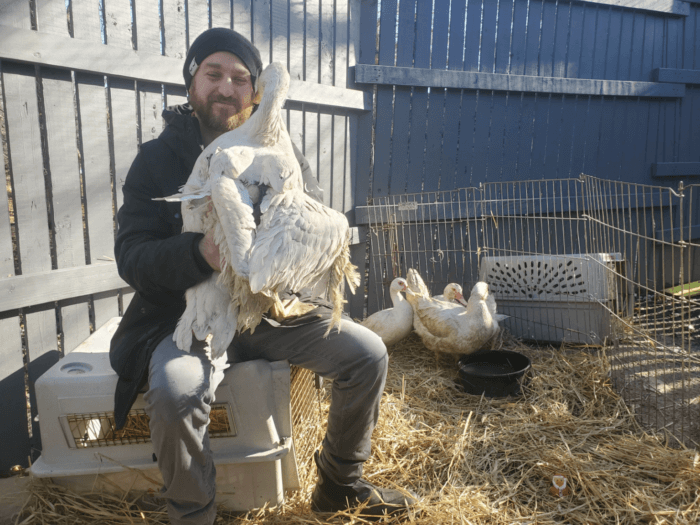
More than a dozen geese and ducks were rescued from a Forest Hills home, where they were illegally kept outdoors in deplorable conditions.
The Long Island Orchestrating for Nature (LION), the leading waterfowl rescue organization in the Northeast, and New Yorkers for Clean, Livable and Safe Streets (NYCLASS), obtained the release of a domestic Embden goose and four Muscovy ducks from a residence across from Forest Hills High School, which were discovered lying on a bed of frozen feces and fed a diet of stale bread and moldy bagels. The rescuers returned to the home and were able to negotiate the release of 12 more waterfowl on Thursday evening, Jan. 13.
The large birds recovered at LION’s Riverhead animal shelter and are being treated by a veterinarian for severe wing deformities and staph infections attributed to their poor diet and lack of shelter.
“Animals, whether dogs or ducks, feel pain and suffer just like we do,” LION President John Di Leonardo said. “If we’re cold, they’re cold. Muscovy ducks are endemic to South and Central America and are especially prone to frostbite and hypothermia when exposed to our cold winters. LION is urging the public to contact us immediately if they see domestic ducks or geese abandoned in public parks or left outside without shelter, especially in New York City where it is illegal to house these sensitive animals.”

